Navigating the complexities of international shipping can be daunting, especially when importing goods from China to Canada. Freight forwarding plays a pivotal role in this process, encompassing a range of services that facilitate the smooth transportation of products across borders. From selecting the most suitable shipping method to ensuring compliance with customs regulations, understanding the step-by-step process of hiring a freight forwarder is essential for businesses looking to optimize their logistics operations. This guide provides a comprehensive overview of the key steps involved, helping you make informed decisions that enhance efficiency and reduce costs in your import activities.
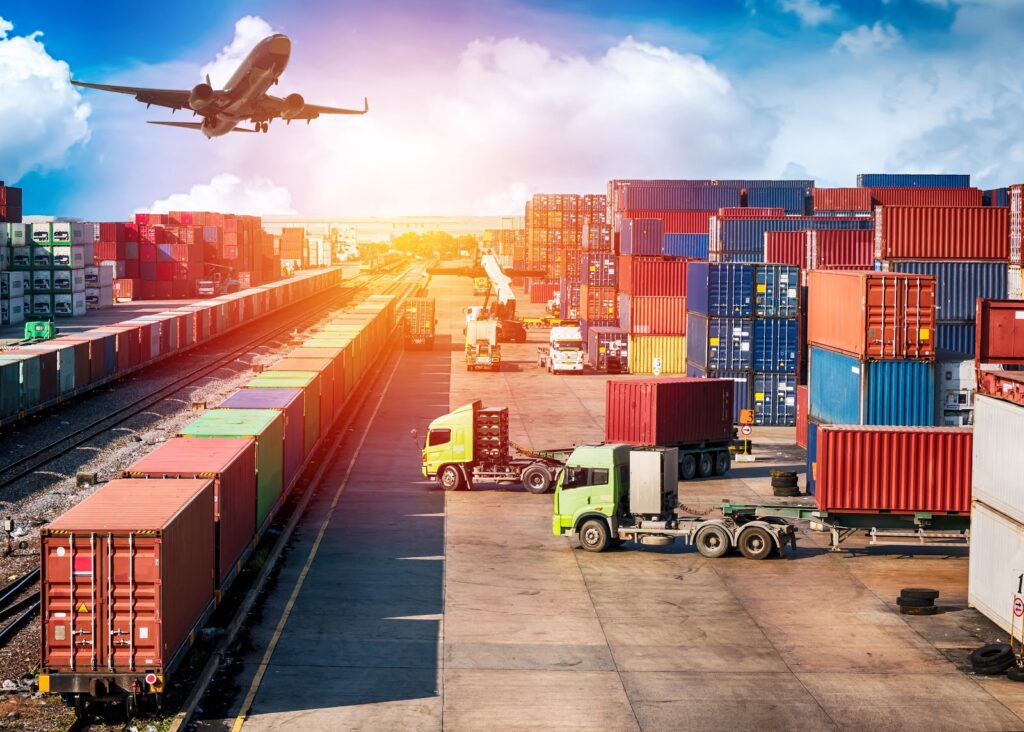
Understanding Freight Forwarding
Freight forwarding is a crucial element in the global supply chain, particularly for businesses engaged in importing goods from countries such as China. It involves the planning, coordination, and movement of goods from one location to another via various transportation methods. This service is not simply about moving cargo; it includes a myriad of logistics services that ensure smooth transit and delivery. Key components of freight forwarding include:
-
Transportation Modes: Freight forwarding encompasses several modes, including air freight, ocean freight, and road transport. Each mode has its own advantages and is suitable for different types of goods, timelines, and budgets.
-
Documentation: A freight forwarder handles essential paperwork such as bills of lading, commercial invoices, and customs declarations. Proper documentation is vital to prevent delays and ensure compliance with international trade regulations.
-
Customs Clearance: Navigating customs regulations can be a complex task. A proficient freight forwarder not only ensures that all duties and tariffs are accurately calculated and paid but also facilitates smooth customs clearance to avoid unnecessary delays. You can learn more about these services through Customs Clearance.
-
Insurance Services: To mitigate risks associated with loss or damage during transit, freight forwarders typically offer insurance services. This adds an essential layer of protection for businesses, particularly when dealing with high-value shipments.
-
Warehousing and Distribution: Many freight forwarders provide additional services such as warehouse services to store goods temporarily before distribution. This is particularly useful for businesses that require a buffer period for inventory management.
Understanding these aspects of freight forwarding is fundamental for businesses seeking to establish reliable and efficient logistics practices, especially when importing goods from China.
Importance of Choosing the Right Freight Forwarder for Your Business
Selecting the right freight forwarder is a decisive factor that can significantly impact your business operations. Engaging a competent freight forwarder can provide several advantages that contribute to operational efficiency and cost-effectiveness.
1. Expertise and Experience
A well-established freight forwarder brings a wealth of knowledge to the table. With extensive experience in various markets, they understand the complexities of shipping logistics, customs regulations, and regional specifics. This expertise is invaluable for businesses that may not have in-house logistics capabilities.
2. Cost-Efficiency
Cost considerations are paramount in logistics. A proficient freight forwarder can negotiate favorable rates with carriers and ensure that your shipping costs are competitive. By leveraging their industry relationships, they can help businesses save significantly on transportation costs.
| Shipping Method | Average Cost (USD) | Estimated Transit Time |
|---|---|---|
| Air Freight | 5-10 per kg | 3-5 days |
| Ocean Freight (FCL) | 1,000-3,000 | 20-40 days |
| Ocean Freight (LCL) | 200-500 per m³ | 30-50 days |
3. Comprehensive Service Offerings
A freight forwarder that provides door-to-door shipping services simplifies the logistics process by handling all aspects of shipping from pickup to final delivery. This service is highly beneficial for businesses looking to streamline their supply chain operations. Dantful’s DDP Shipping Services ensure that all duties are pre-paid, facilitating a hassle-free experience for importers.
4. Risk Management
Shipping goods across international borders poses inherent risks. An experienced freight forwarder can help mitigate these risks through proper cargo insurance and by ensuring compliance with all regulations. With services like Insurance Services, businesses can safeguard their shipments against unforeseen challenges.
5. Network and Resources
A reputable freight forwarder has invaluable networks and resources that expand your shipping capabilities. This includes access to reliable carriers, warehousing facilities, and transportation networks that can adapt to changing demands and conditions. The ability to pivot in response to logistics challenges allows for a more resilient supply chain.
6. Personalized Customer Service
The best freight forwarders prioritize customer service, providing tailored solutions that meet individual business needs. Open communication channels, frequent updates, and dedicated support are essential qualities that enhance the shipping experience.
Choosing the right freight forwarder, such as Dantful, can be instrumental in driving business success. Their high-quality, cost-effective, and comprehensive logistics services help businesses navigate the complexities of international shipping seamlessly.
READ MORE:
- Shipping From China to the United States
- Shipping From China TO Canada
- Shipping From China TO Mexico
- Shipping From China to Panama
- Shipping From China to Costa Rica
- Shipping From China to Brazil
- Shipping From China TO Colombia
- Shipping From China to Jamaica
- Shipping From China to Venezuela
Step 1: Identifying Your Shipping Needs
Before engaging a freight forwarder, it is crucial to thoroughly identify your shipping needs. This process involves understanding the specifics of what you intend to ship, how much you will be moving, and the best methods for transportation. Each of these elements plays a vital role in ensuring that your logistics operations are efficient and cost-effective.
Determining the Type of Goods to Ship
The nature of the goods being shipped significantly influences the logistics strategy. Different products require varying handling, packaging, and transportation modes. For example:
- Perishable Goods: Items such as food and pharmaceuticals must be transported under specific temperature controls. Utilizing air freight is often necessary to ensure timely delivery.
- Heavy Machinery: Larger items may require special handling and shipping solutions, potentially involving ocean freight due to cost considerations and the feasibility of transport.
- Hazardous Materials: Shipping dangerous goods requires compliance with stringent regulations, necessitating specialized freight forwarders with expertise in this area.
Clearly identifying the type of goods ensures that you select a freight forwarder well-versed in handling your specific products, ultimately leading to smoother shipping processes.
Assessing Volume and Weight Requirements
Volume and weight are critical factors that determine shipping costs and logistics strategies. Understanding your shipment’s dimensions and weight allows you to select the most appropriate shipping method, as each has its own capacity and pricing structures.
- Volume: This is typically measured in cubic meters (m³) for ocean freight and can influence whether full container loads (FCL) or less than container loads (LCL) are required.
- Weight: For air freight, weight is often a limiting factor. Charges may be based on the greater of actual weight or volumetric weight, making it essential to accurately calculate your goods’ dimensions.
Utilizing tools and calculators provided by freight forwarders can assist in determining the most cost-effective way to ship your products.
Choosing the Appropriate Shipping Method (Air vs. Sea)
Selecting the right shipping method is pivotal, as it affects delivery times, costs, and logistics complexity.
- Air Freight: This method is faster, making it ideal for high-value or time-sensitive shipments but typically comes at a premium cost. For instance, shipping electronics or fashion items that need to reach market quickly might necessitate air transport.
- Ocean Freight: More economical for larger shipments, ocean freight is suitable for bulk items or heavy machinery. However, it takes longer, ranging from 20 to 40 days depending on the destination.
A comparison table can help visualize the differences:
| Shipping Method | Estimated Cost | Estimated Transit Time | Ideal For |
|---|---|---|---|
| Air Freight | High | 3-5 days | Perishable goods, urgent shipments |
| Ocean Freight | Low | 20-40 days | Bulk commodities, heavy machinery |
Evaluating these options allows you to select a shipping method that aligns with your business objectives, balancing cost against efficiency.
Step 2: Researching Potential Freight Forwarders
Once you have a clear understanding of your shipping needs, the next step is to research potential freight forwarders. Choosing the right partner is essential for ensuring your shipments are handled efficiently and cost-effectively.
Utilizing Online Platforms and Directories
The internet provides a wealth of resources for identifying freight forwarders. Online platforms and directories can help you compile a list of potential candidates:
- Freight Forwarding Directories: Websites that specialize in listing freight forwarders can provide detailed information about their services, areas of expertise, and contact information. Examples include FreightNet and Alibaba.
- Industry Forums and Groups: Engaging with industry-specific forums or LinkedIn groups can connect you with recommendations from other professionals in logistics.
These platforms enable you to gather information quickly and efficiently, making your research process smoother.
Evaluating Industry Experience and Specialization
Not all freight forwarders are created equal. Assessing their industry experience and specialization is crucial:
- Years in Business: A freight forwarder with a long-standing presence likely has the expertise to handle complex logistics challenges.
- Specialization: Some forwarders may specialize in specific industries, such as electronics, textiles, or hazardous materials. Choosing a forwarder with relevant experience can significantly ease the shipping process.
Requesting case studies or examples of previous shipments can provide insight into their capabilities and expertise in handling your specific goods.
Checking Reviews and Testimonials
Reputation is a cornerstone of trust in the freight forwarding industry. Investigating reviews and testimonials can provide valuable insights into a freight forwarder’s reliability and service quality:
- Online Reviews: Websites like Trustpilot and Google Reviews often feature customer feedback, offering a glimpse into real client experiences.
- Testimonials: Directly asking potential freight forwarders for references or testimonials can provide assurance of their service capabilities.
A freight forwarder with consistently positive reviews and satisfied customers is more likely to deliver a reliable shipping experience.
By thoroughly identifying your shipping needs and conducting comprehensive research on potential freight forwarders, you position your business for successful logistics operations, ensuring timely and cost-effective delivery of goods. Partnering with a reputable provider such as Dantful can further enhance your global trading capabilities, aligning with your business goals.
Step 3: Evaluating Services Offered by Freight Forwarders
Selecting a freight forwarder involves not only assessing their reputation and experience but also evaluating the specific services they offer. The range of services can greatly impact your shipping efficiency, costs, and the overall success of your logistics operations.
Understanding Customs Clearance and Documentation Services
One of the most critical functions of a freight forwarder is handling customs clearance. This process involves ensuring that all customs regulations are adhered to and that necessary documentation is accurately prepared and submitted. The following aspects are vital to consider:
-
Documentation Handling: A proficient freight forwarder manages essential paperwork, such as bills of lading, commercial invoices, and packing lists. Proper documentation is crucial for smooth entry and exit at customs checkpoints. Mismanaged documentation can lead to shipment delays, fines, or even confiscation of goods.
-
Customs Compliance: Understanding country-specific customs regulations is essential. A skilled freight forwarder will stay updated on changes in customs laws and tariffs that may affect your shipments, ensuring compliance to avoid any legal issues.
-
Duties and Taxes Calculation: A freight forwarder should be able to accurately calculate all applicable duties and taxes ahead of shipping. This service not only aids in budgeting but also enhances the predictability of shipping costs.
Evaluating a forwarder’s proficiency in customs clearance and documentation services is fundamental for successful international shipping operations.
Assessing Additional Services: Insurance, Packaging, and Warehousing
Freight forwarders often provide various additional services that can simplify logistics and enhance the safety of your shipments:
-
Insurance Services: Assessing the insurance options available is crucial. A reputable freight forwarder should offer comprehensive insurance services that protect your goods against damage or loss during transit. Understanding the coverage limits and claims process is essential for risk management.
-
Packaging Solutions: Proper packaging is vital for protecting goods, especially during international transport. Inquire about packaging services that the freight forwarder offers, including custom packaging solutions for fragile or high-value items.
-
Warehousing Options: Many freight forwarders provide warehouse services for short-term storage. This can be particularly beneficial if your supply chain requires flexibility or if items need to be stored before distribution. Understanding the warehouse facilities available, including security and climate control, can impact decision-making.
Evaluating these additional services can help streamline your shipping process and ensure that your goods are well-handled at every stage.
Inquiring About Tracking and Customer Support
Effective communication and tracking capabilities significantly enhance the shipping experience. Consider the following aspects:
-
Tracking Services: A reliable freight forwarder should provide real-time tracking capabilities. This allows you to monitor your shipment’s progress and respond quickly to any issues that may arise. Understanding the technology used for tracking and the accessibility of tracking information is essential.
-
Customer Support: Evaluate the customer support offered by the freight forwarder. This includes the availability of a dedicated account manager, response times for inquiries, and assistance in resolving issues. Strong customer support can be a valuable asset when dealing with the complexities of international shipping.
Researching a freight forwarder’s capabilities in tracking and customer support is crucial for ensuring an efficient shipping experience.
Step 4: Comparing Quotes and Pricing Structures
Once you have a thorough understanding of the services offered, the next step involves comparing quotes and pricing structures from different freight forwarders. This analysis allows you to make an informed decision based on your logistics needs and budget considerations.
Analyzing Cost Components: Shipping, Handling, and Insurance
Freight forwarding costs can vary widely based on several components. Understanding these costs is key to making a sound financial decision:
-
Shipping Costs: This is often the most significant portion of the total freight cost. It includes transportation fees based on the shipping method chosen (air, sea, or road). Different freight forwarders may present shipping costs differently, so ensure you are comparing comparable services.
-
Handling Fees: These are charges for the handling of goods during loading, unloading, and storage. Understanding how these fees are applied can help you anticipate and manage your overall logistics expenses.
-
Insurance Costs: While often optional, insurance can offer critical protection. Evaluate how much insurance will cost based on the value of your goods and the terms offered by the freight forwarder.
By breaking down these cost components, you can assess the overall value offered by each freight forwarder.
Understanding Pricing Models: FCL vs. LCL
Pricing models can significantly affect your shipping expenses. Familiarity with Full Container Load (FCL) and Less than Container Load (LCL) options is vital:
-
FCL Pricing: When shipping large quantities, FCL may be more economical. You pay for the entire container, regardless of whether it’s fully loaded. This method is often quicker since it avoids the need to consolidate cargo with multiple shippers.
-
LCL Pricing: Suitable for smaller shipments, LCL allows you to share container space with other shippers. While this can be cheaper for low volume, additional handling and longer transit times may apply due to the consolidation process.
Understanding the distinctions and implications of FCL and LCL pricing ensures that you choose the most cost-effective shipping solution for your business needs.
Negotiating Terms and Conditions
After gathering quotes and understanding pricing structures, it’s time to negotiate terms with potential freight forwarders. Key components to focus on include:
-
Payment Terms: Discuss when payments are due and whether deposits are required. Understanding the payment structure can aid in cash flow management.
-
Delivery Times: Confirm estimated delivery times and penalties for delays. Clear expectations can prevent future disputes and ensure accountability.
-
Service Level Agreements (SLAs): Establishing SLAs can provide clarity on the level of service to be expected, including response times and support availability.
Negotiating favorable terms can lead to a smoother shipping experience, ensuring both parties are aligned on expectations and responsibilities.
By thoroughly evaluating the services offered by freight forwarders and carefully comparing quotes and pricing structures, businesses can make informed decisions that optimize their logistics operations while minimizing costs. Partnering with a reliable provider such as Dantful can enhance your import processes, ensuring high-quality service tailored to your unique shipping requirements.
Step 5: Verifying Credentials and Compliance
Before entrusting your logistics needs to a freight forwarder, it is imperative to verify their credentials and ensure compliance with relevant regulations. This step safeguards your business against potential legal issues and service disruptions.
Checking Licenses and Certifications
Freight forwarders must hold specific licenses and certifications to operate legally within the logistics industry. Key licenses and certifications to confirm include:
-
Freight Forwarder License: In many countries, freight forwarders are required to hold a specific license, often issued by a government authority or transportation department. Verify that the forwarder has the appropriate license to conduct business.
-
Customs Broker License: If the forwarder offers customs clearance services, they should also have a customs broker license. This certification ensures they are qualified to handle customs-related matters, including the submission of necessary documentation to expedite the clearance process.
-
Industry Certifications: Look for certifications from recognized industry organizations, such as the International Federation of Freight Forwarders Associations (FIATA) or the Customs-Trade Partnership Against Terrorism (C-TPAT). These certifications demonstrate a commitment to best practices and regulatory compliance.
Verifying these credentials ensures that the freight forwarder adheres to industry standards, enhancing the likelihood of reliable service.
Understanding Regulatory Requirements for Shipping to Canada
Shipping goods to Canada requires compliance with specific regulatory requirements. Familiarize yourself with the following regulations:
-
Canada Border Services Agency (CBSA): The CBSA oversees imports into Canada. It is essential to understand their requirements for documentation, duties, and tariffs. Ensure the freight forwarder is knowledgeable about these regulations to avoid potential issues upon arrival.
-
Import Control List (ICL): Certain goods are subject to restrictions and may require special permits to import. Verify that your freight forwarder is aware of any items on the Import Control List and can guide you through the necessary steps.
-
Canadian Environmental Regulations: Some products, especially chemicals and food items, are subject to environmental regulations. Confirm that the freight forwarder can navigate these requirements to ensure compliance.
Understanding these regulations is crucial for a seamless shipping experience and can help avoid costly penalties or customs delays.
Ensuring Risk Management and Insurance Coverage
Effective risk management is essential when engaging a freight forwarder. Assess the following aspects to ensure adequate protection for your shipments:
-
Insurance Policies: Confirm that the freight forwarder offers comprehensive insurance services to cover potential risks during transit. This includes coverage for loss, damage, or theft. Evaluate the policies available, including coverage limits and claims procedures.
-
Risk Assessment Procedures: Discuss how the freight forwarder assesses risks associated with your specific shipments. Their ability to identify potential hazards and implement mitigating strategies can safeguard your cargo.
-
Contingency Planning: A reputable freight forwarder should have contingency plans in place for various scenarios, such as delays, damaged goods, or customs issues. Inquire about their response strategies to ensure a proactive approach to risk management.
Assessing and confirming these elements will provide peace of mind that your goods are protected throughout the shipping process.
Step 6: Finalizing the Agreement
Once you have verified credentials and compliance, the next step is to finalize the agreement with your chosen freight forwarder. This process involves a thorough review of the contract and establishing clear communication protocols.
Reviewing Contract Terms and Conditions
The contract is a vital document that outlines the responsibilities and expectations for both parties. Key components to review include:
-
Scope of Services: Ensure the contract clearly defines the services the freight forwarder will provide. This includes shipping methods, handling of customs clearance, and any additional services, such as warehousing or insurance.
-
Liability Clauses: Review the liability clauses to understand the forwarder’s responsibility for loss or damage to goods during transit. Ensure that the terms are acceptable and that you have adequate coverage.
-
Termination Clauses: Discuss the terms under which either party can terminate the agreement. Understanding the conditions for termination will help avoid misunderstandings in the future.
-
Amendment Procedures: Verify the process for making changes to the agreement, ensuring that both parties can adapt to evolving business needs.
A comprehensive review of the contract will help prevent disputes and ensure clarity in the logistics partnership.
Establishing Clear Communication Channels
Effective communication is crucial in logistics to ensure timely updates and resolution of issues that may arise. Establish the following communication protocols:
-
Primary Points of Contact: Designate primary contacts for both your business and the freight forwarder. Having defined individuals responsible for communication can streamline the process.
-
Communication Methods: Agree on preferred communication channels, whether via email, phone, or messaging apps. Clear expectations regarding response times and escalation protocols can enhance collaboration.
-
Regular Updates: Discuss the frequency and format of status updates on shipments. Regular updates can help keep all parties informed and facilitate proactive problem-solving.
Establishing clear communication channels will foster a productive working relationship and enhance overall efficiency.
Setting Up Payment Terms and Invoicing Processes
Payment terms and invoicing are critical components of the agreement. Consider the following elements:
-
Payment Schedule: Outline when payments are due, whether upfront, upon delivery, or at specific milestones. Understanding the payment schedule can aid in cash flow management.
-
Invoicing Procedures: Clarify the invoicing process, including how often invoices will be issued, the required documentation, and acceptable payment methods. Ensure both parties agree on invoicing timelines to avoid confusion.
-
Currency Considerations: Discuss the currency in which payments will be made, particularly if dealing with international shipments. Understanding currency fluctuations and conversion fees can help manage costs effectively.
By setting clear payment terms and invoicing processes, you can mitigate potential financial misunderstandings.
Step 7: Preparing for Shipment
With the agreement finalized, it is time to prepare for the upcoming shipment. This step involves organizing necessary documentation, coordinating logistics, and ensuring compliance with Canadian import regulations.
Organizing Necessary Documentation
Proper documentation is essential for smooth shipping and customs clearance. Key documents to organize include:
-
Commercial Invoice: This document outlines the details of the transaction, including item descriptions, quantities, and prices. It is necessary for customs declaration.
-
Packing List: A packing list details the contents of the shipment, including dimensions, weight, and packaging specifications. It aids in the verification of goods upon arrival.
-
Bill of Lading: This document serves as a contract between the shipper and carrier, outlining the terms of transportation. It is essential for tracking and claims purposes.
-
Certificates and Permits: If applicable, gather any necessary certificates, such as health, phytosanitary, or import permits required for specific goods.
Ensuring that all documentation is accurate and complete will facilitate a seamless shipping process.
Coordinating Pickup and Delivery Details
Effective coordination is crucial for ensuring timely pickup and delivery of goods. Consider the following steps:
-
Pickup Scheduling: Coordinate with the freight forwarder to schedule the pickup of your goods. Confirm the location, date, and time to ensure availability.
-
Delivery Address Verification: Verify the delivery address and any specific instructions for arrival. Providing detailed information can prevent delivery delays and complications.
-
Contacting Relevant Parties: Ensure all relevant parties, including warehouse staff and logistics teams, are informed about the pickup and delivery schedule to facilitate a smooth process.
A well-coordinated plan can significantly enhance the efficiency of the shipping process.
Ensuring Compliance with Canadian Import Regulations
Compliance with Canadian import regulations is vital for a successful shipment. Key points to ensure compliance include:
-
Review Import Requirements: Familiarize yourself with the import requirements for your specific goods, including any restrictions or prohibitions.
-
Customs Declarations: Ensure that the freight forwarder has all necessary information for accurate customs declarations to avoid delays at the border.
-
Payment of Duties and Taxes: Confirm that all applicable duties and taxes are calculated and prepared for payment. Understanding the payment process can prevent unnecessary customs hold-ups.
By taking these steps to ensure compliance, you can mitigate the risk of delays and facilitate a successful shipping experience.
Establishing a meticulous approach to each of these steps will contribute to a seamless logistics operation, enabling your business to thrive in the competitive global market. Partnering with a reputable freight forwarder like Dantful International Logistics can enhance your shipping processes, ensuring a reliable and efficient experience throughout.
Frequently Asked Questions (FAQs)
1. What is freight forwarding?
Freight forwarding is the process of planning, coordinating, and moving goods from one location to another through various transportation methods, such as air freight, ocean freight, and road transport. It involves handling essential logistics services including documentation, customs clearance, insurance, and warehousing.
2. Why should I choose a professional freight forwarder?
Engaging a professional freight forwarder, like Dantful International Logistics, offers several advantages:
- Expertise and Experience: They possess in-depth knowledge of shipping logistics and customs regulations.
- Cost-Efficiency: They can negotiate favorable shipping rates and help save on transportation costs.
- Comprehensive Services: They handle all logistics aspects from pickup to delivery, including customs clearance and insurance services.
3. How do I assess my shipping needs?
To assess your shipping needs, consider the following:
- Type of Goods: Identify whether your goods are perishable, heavy machinery, or hazardous materials, as this affects handling and shipping methods.
- Volume and Weight: Measure your shipment’s dimensions and weight to determine the most suitable shipping method (FCL vs. LCL).
- Shipping Method: Decide between air freight for speed or ocean freight for cost-effectiveness.
4. What are the typical costs associated with freight forwarding?
Freight forwarding costs can vary depending on several factors:
- Shipping Costs: The largest portion, varying by method (air vs. sea).
- Handling Fees: Charges for the physical handling of goods.
- Insurance: Optional but recommended to protect against loss or damage.
| Shipping Method | Average Cost (USD) | Estimated Transit Time |
|---|---|---|
| Air Freight | 5-10 per kg | 3-5 days |
| Ocean Freight (FCL) | 1,000-3,000 | 20-40 days |
| Ocean Freight (LCL) | 200-500 per m³ | 30-50 days |
5. How can I evaluate potential freight forwarders?
To evaluate potential freight forwarders:
- Check Reviews and Testimonials: Look for feedback on platforms like Trustpilot and Google Reviews.
- Verify Credentials: Ensure they have the necessary licenses, such as freight forwarder and customs broker licenses.
- Assess Industry Experience: Determine their specialization in your industry and years of operation.
6. What does customs clearance involve?
Customs clearance entails:
- Documentation Handling: Managing all necessary paperwork for efficient customs processing.
- Duties and Taxes Calculation: Ensuring accurate calculations of all applicable duties and taxes.
- Compliance: Adhering to country-specific customs regulations to prevent delays or legal issues.
7. What should I include in the shipping agreement with my freight forwarder?
Key components to include in the shipping agreement:
- Scope of Services: Clearly define the services provided.
- Liability Clauses: Understand the forwarder’s responsibility for goods.
- Payment Terms: Establish payment schedules and acceptable methods.

Young Chiu is a seasoned logistics expert with over 15 years of experience in international freight forwarding and supply chain management. As CEO of Dantful International Logistics, Young is dedicated to providing valuable insights and practical advice to businesses navigating the complexities of global shipping.











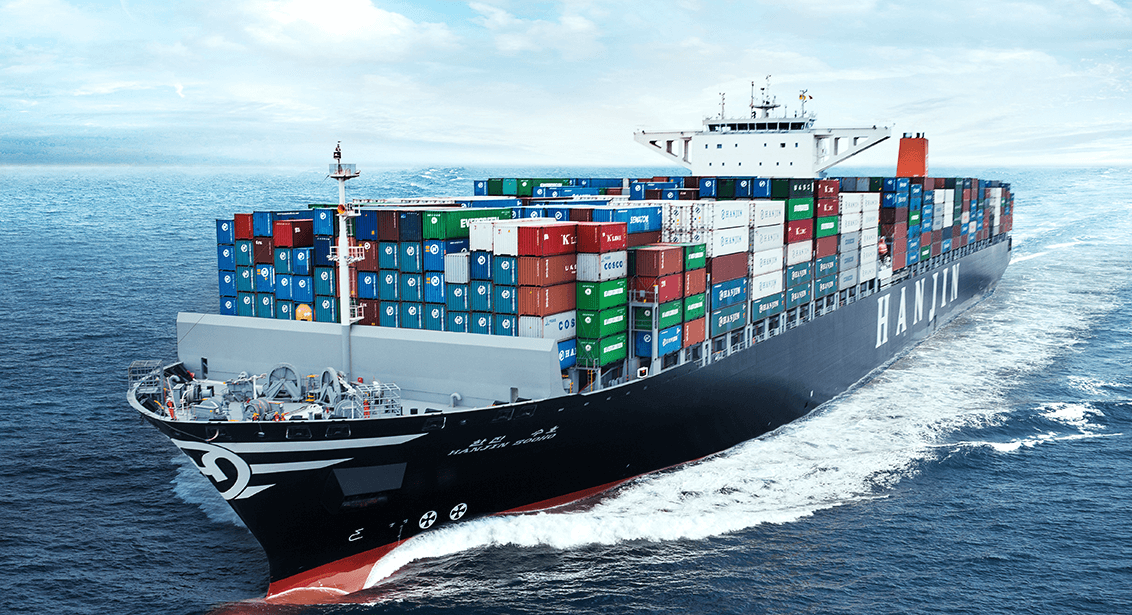
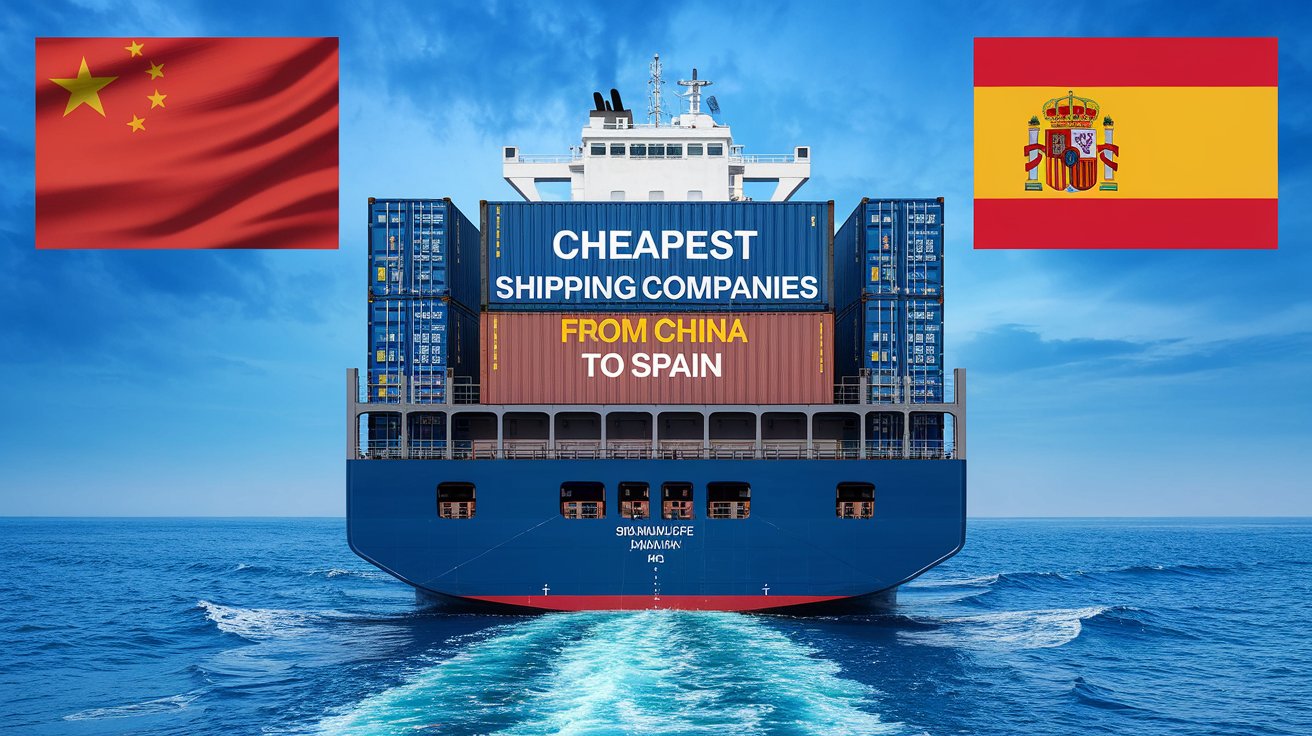
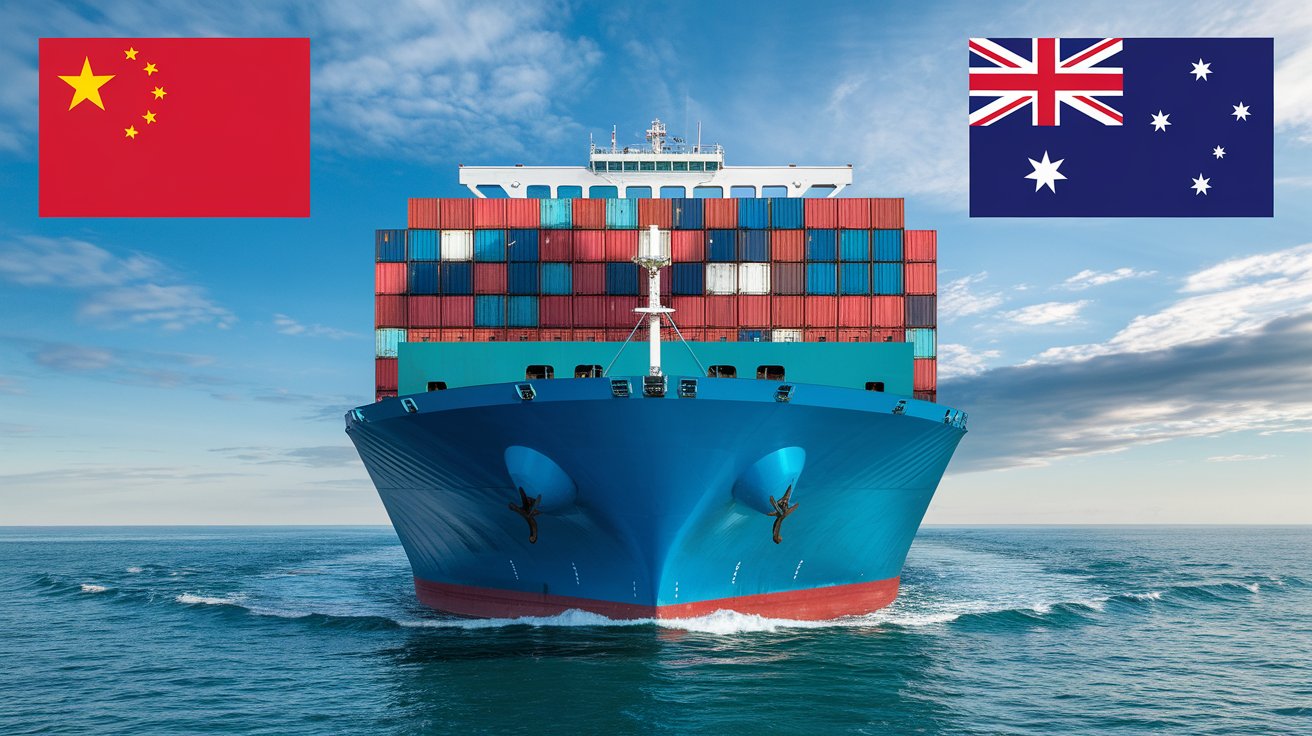
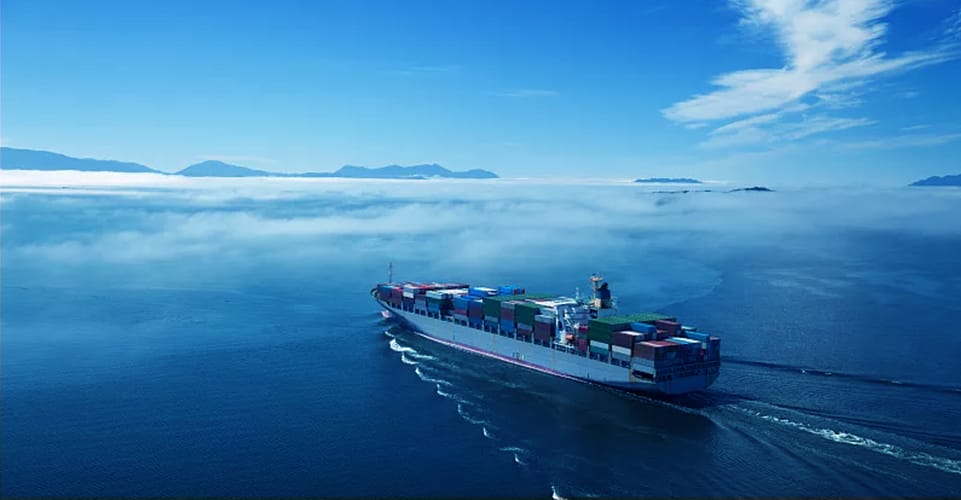






 Afrikaans
Afrikaans Shqip
Shqip አማርኛ
አማርኛ العربية
العربية Հայերեն
Հայերեն Azərbaycan dili
Azərbaycan dili Euskara
Euskara Беларуская мова
Беларуская мова বাংলা
বাংলা Bosanski
Bosanski Български
Български Català
Català Cebuano
Cebuano Chichewa
Chichewa 简体中文
简体中文 繁體中文
繁體中文 Corsu
Corsu Hrvatski
Hrvatski Čeština
Čeština Dansk
Dansk Nederlands
Nederlands English
English Esperanto
Esperanto Eesti
Eesti Filipino
Filipino Suomi
Suomi Français
Français Galego
Galego ქართული
ქართული Deutsch
Deutsch Ελληνικά
Ελληνικά Kreyol ayisyen
Kreyol ayisyen Harshen Hausa
Harshen Hausa Ōlelo Hawaiʻi
Ōlelo Hawaiʻi עִבְרִית
עִבְרִית हिन्दी
हिन्दी Hmong
Hmong Magyar
Magyar Íslenska
Íslenska Igbo
Igbo Bahasa Indonesia
Bahasa Indonesia Gaeilge
Gaeilge Italiano
Italiano 日本語
日本語 Basa Jawa
Basa Jawa ಕನ್ನಡ
ಕನ್ನಡ Қазақ тілі
Қазақ тілі ភាសាខ្មែរ
ភាសាខ្មែរ 한국어
한국어 كوردی
كوردی Кыргызча
Кыргызча ພາສາລາວ
ພາສາລາວ Latin
Latin Latviešu valoda
Latviešu valoda Lietuvių kalba
Lietuvių kalba Lëtzebuergesch
Lëtzebuergesch Македонски јазик
Македонски јазик Malagasy
Malagasy Bahasa Melayu
Bahasa Melayu മലയാളം
മലയാളം Maltese
Maltese Te Reo Māori
Te Reo Māori मराठी
मराठी Монгол
Монгол ဗမာစာ
ဗမာစာ नेपाली
नेपाली Norsk bokmål
Norsk bokmål پښتو
پښتو فارسی
فارسی Polski
Polski Português
Português ਪੰਜਾਬੀ
ਪੰਜਾਬੀ Română
Română Русский
Русский Samoan
Samoan Gàidhlig
Gàidhlig Српски језик
Српски језик Sesotho
Sesotho Shona
Shona سنڌي
سنڌي සිංහල
සිංහල Slovenčina
Slovenčina Slovenščina
Slovenščina Afsoomaali
Afsoomaali Español
Español Basa Sunda
Basa Sunda Kiswahili
Kiswahili Svenska
Svenska Тоҷикӣ
Тоҷикӣ தமிழ்
தமிழ் తెలుగు
తెలుగు ไทย
ไทย Türkçe
Türkçe Українська
Українська اردو
اردو O‘zbekcha
O‘zbekcha Tiếng Việt
Tiếng Việt Cymraeg
Cymraeg יידיש
יידיש Yorùbá
Yorùbá Zulu
Zulu